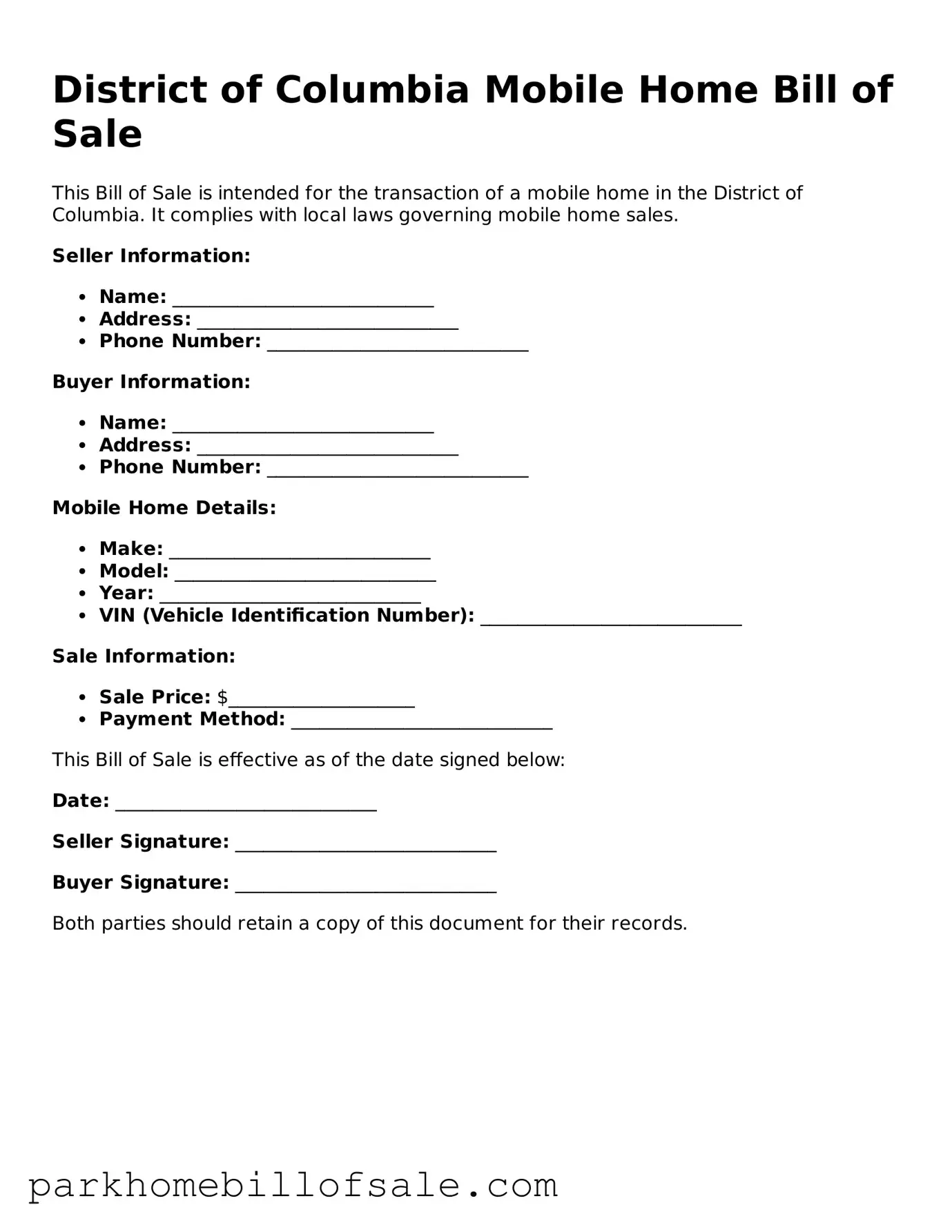Documents used along the form
When completing a transaction involving a mobile home in the District of Columbia, several important forms and documents may accompany the Mobile Home Bill of Sale. Each of these documents serves a unique purpose, ensuring a smooth transfer of ownership and compliance with local regulations.
- Title Transfer Document: This document officially transfers the title of the mobile home from the seller to the buyer. It must be completed and submitted to the appropriate local agency to update ownership records.
- Affidavit of Ownership: This sworn statement confirms the seller's ownership of the mobile home and their right to sell it. It provides legal assurance to the buyer regarding the legitimacy of the sale.
- Bill of Sale for Personal Property: Although the Mobile Home Bill of Sale is specific to mobile homes, a general bill of sale may also be used to document the transaction of personal property included in the sale, such as appliances or furniture.
- Inspection Report: An inspection report details the condition of the mobile home at the time of sale. This document can help protect the buyer by disclosing any existing issues that may need to be addressed.
- Loan Agreement: If the buyer is financing the purchase, a loan agreement outlines the terms of the loan, including repayment schedules and interest rates. This document is crucial for both parties to understand their financial obligations.
- Rental Agreement: If the mobile home is located on rented land, a rental agreement may be necessary to clarify the terms of the land lease. This document ensures the buyer understands their responsibilities as a tenant.
Having these documents prepared and organized can facilitate a smoother transaction process. It is advisable to review each document carefully to ensure compliance with local laws and to protect the interests of both the buyer and the seller.
